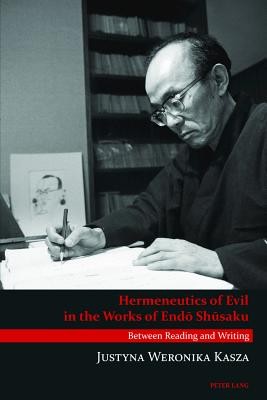
- Išsiųsime per 10–14 d.d.
- Autorius: Justyna Weronika Kasza
- Leidėjas: Peter Lang GmbH, Internationaler Verlag der Wissenschaften
- ISBN-10: 3034318391
- ISBN-13: 9783034318396
- Formatas: 15 x 22.4 x 2.3 cm, minkšti viršeliai
- Kalba: Anglų
- Extra -15 % nuolaida šiai knygai su kodu: ENG15
Hermeneutics of Evil in the Works of Endō Shūsaku + nemokamas atvežimas! | knygos.lt
Atsiliepimai
Aprašymas
Evil is a salient component of Endō Shūsaku's writing. Questions surrounding evil haunted the writer as a student of French literature, having discovered the works of Western authors like François Mauriac and Georges Bernanos. It is around the problem of evil that Endō would create his most renowned novels and the cross-cultural dimensions of the questions he posed on the nature of evil would make him one of the most widely translated Japanese authors.This study offers new insight into the intellectual and artistic development of the author by focusing on a lesser known yet significant body of work: his essays and critical texts. The book is, on the one hand, an attempt to follow the path of thinking delineated by Endō Shūsaku himself and, on the other, a methodological approach to literary studies based on the application of selected categories of Paul Ricoeur's hermeneutics. Thus, the book accentuates the problem of subjectivity and personhood in Endō's works, ultimately exploring the question, Who is the one who asks about evil?
EXTRA 15 % nuolaida
Kupono kodas: ENG15
Akcija baigiasi už 5d.09:40:07
Nuolaidos kodas galioja perkant nuo 10 €. Nuolaidos nesumuojamos.

- Autorius: Justyna Weronika Kasza
- Leidėjas: Peter Lang GmbH, Internationaler Verlag der Wissenschaften
- ISBN-10: 3034318391
- ISBN-13: 9783034318396
- Formatas: 15 x 22.4 x 2.3 cm, minkšti viršeliai
- Kalba: Anglų
This study offers new insight into the intellectual and artistic development of the author by focusing on a lesser known yet significant body of work: his essays and critical texts. The book is, on the one hand, an attempt to follow the path of thinking delineated by Endō Shūsaku himself and, on the other, a methodological approach to literary studies based on the application of selected categories of Paul Ricoeur's hermeneutics. Thus, the book accentuates the problem of subjectivity and personhood in Endō's works, ultimately exploring the question, Who is the one who asks about evil?




Atsiliepimai